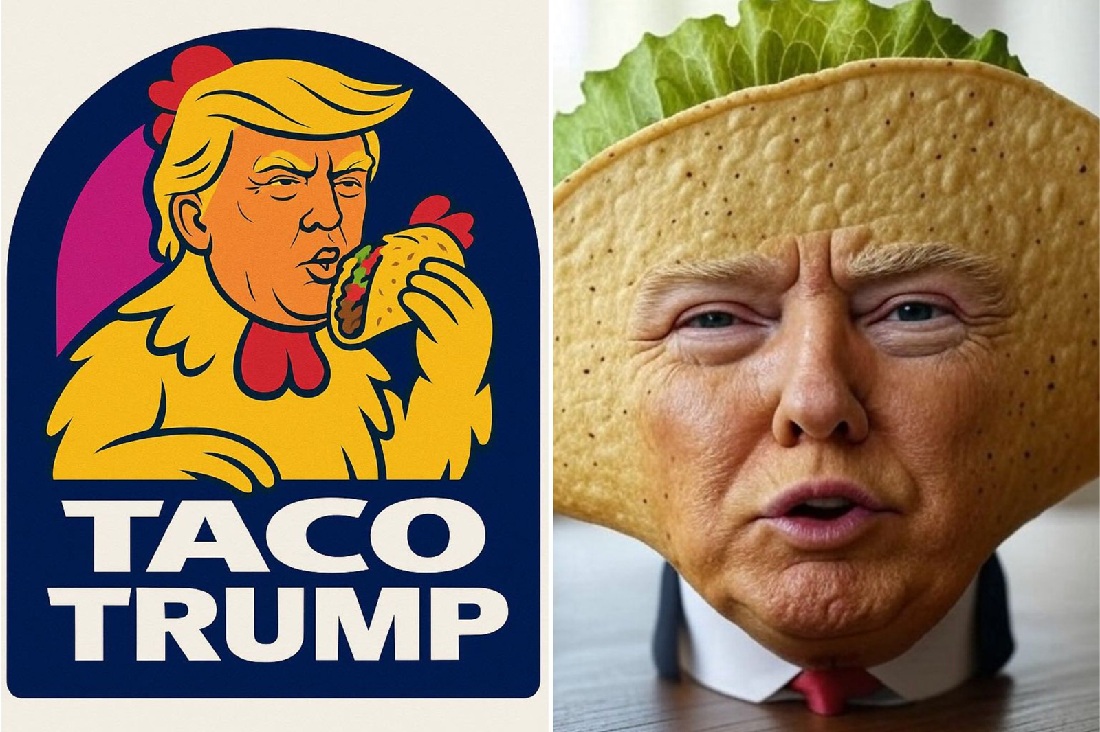“Trump Always Chickens Out”—or “Taco,” for short. It’s the latest catchphrase investors are using to explain financial market behavior, and the narrative is catching on: whenever Donald Trump faces backlash from the markets, he tends to retreat.
It’s safe to say the US president didn’t appreciate being labeled a “chicken.” When a reporter at the White House asked about the growing use of the term on Wall Street, Trump bristled.
“Oh, isn’t that nice—‘I chicken out.’ I’ve never heard that before,” Trump remarked on Wednesday in response to the question about the so-called Taco trade. He quickly pivoted to defend his record, talking up the high tariffs he imposed on China and claiming he had “helped” China by later cutting them.
“But don’t ever say what you said,” he shot back at the reporter. “That’s a nasty question.” Clearly irritated, Trump revisited the topic later, insisting he was no chicken and arguing that people often accuse him of being too tough, not too soft.
Still, Trump’s pattern of reversing course has become a familiar market signal. Stock markets have tended to rebound after sharp drops, even as Trump has pushed tariffs to their highest levels in more than a century.
Despite a deep slump in April after Trump declared “liberation day” tariffs on global trade, the S\&P 500—the US stock market benchmark—has climbed about 1% so far in 2025. Many traders credit the “Taco trade” narrative: if market turmoil erupts, Trump will adjust course, giving companies room to keep profits strong. That belief gained even more traction after New York’s court of international trade ruled on Wednesday night that Trump’s tariffs had been imposed illegally—a decision now being challenged in the courts.
Financial Times columnist Robert Armstrong first coined the Taco acronym on May 2, neatly capturing Wall Street’s reaction to the president’s unpredictable policies. Less than a month later, a new question is emerging: will being called “chicken” push Trump to take a harder line with America’s trading partners?
On some issues—like deporting people to El Salvador without due process—the Trump administration has defied criticism and court orders. But in the financial markets, the pattern remains the same: bold moves are often followed by significant retreats. Those walk-backs have typically come right after falling bond prices drive up US government borrowing costs—a trend that could threaten the economy if it continues.
Trump’s “liberation day” tariffs were quickly followed by a 90-day pause. He threatened to hike EU tariffs to 50%, only to delay until July 9. He raised tariffs on China to a punitive 145%, before rolling them back to 30% for another 90-day pause. Even his threats against Federal Reserve Chair Jerome Powell fizzled after markets made their displeasure clear.
Yet, despite Wall Street’s optimism, economic forecasters remain cautious. The president’s actions, even with their reversals, still represent a significant shift in American policy.

